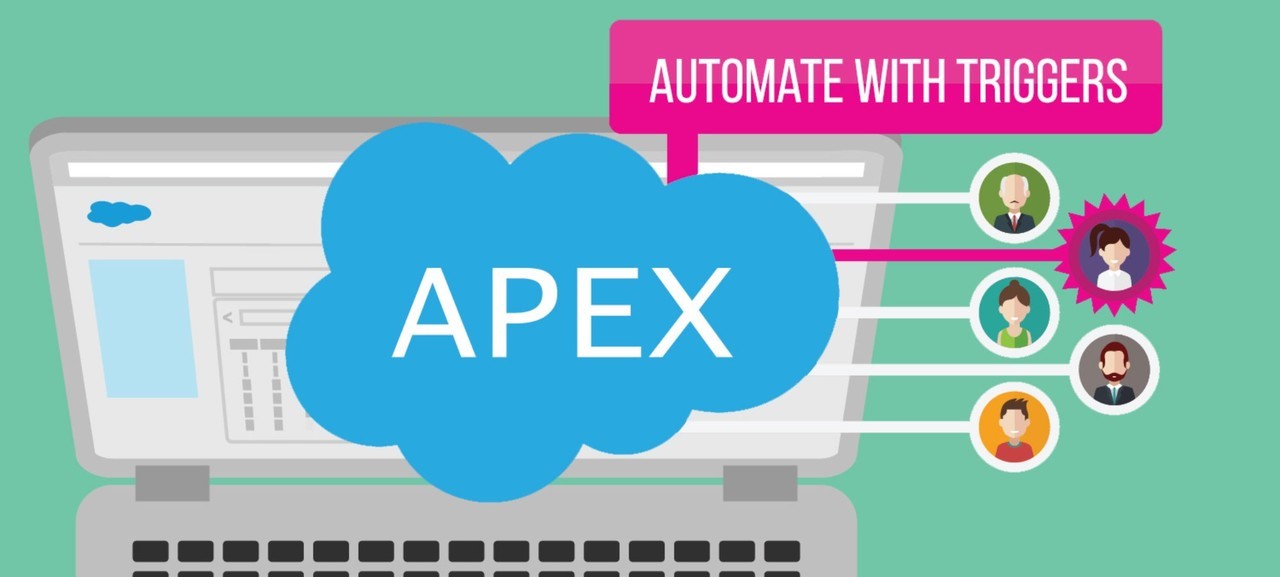
Apex is a powerful programming language used in Salesforce, a leading customer relationship management (CRM) platform. It enables developers to create custom business logic and functionality within the Salesforce environment. Understanding the key facts about Apex is crucial for anyone involved in Salesforce development or administration. From its syntax to its integration capabilities, Apex offers a wide range of features that empower users to build robust applications and automate complex business processes. In this article, we'll delve into six essential facts about Apex, shedding light on its significance and impact within the realm of Salesforce development. Whether you're a seasoned Salesforce professional or just starting your journey with the platform, these insights will deepen your understanding of Apex and its role in driving innovation and efficiency in CRM solutions.
Key Takeaways:
- Apex is a powerful, specialized programming language for building applications on Salesforce. It allows for customizing the user interface, integrating with external systems, and automating processes within the platform.
- Apex employs object-oriented programming, supports asynchronous processing, enables integration with external systems, facilitates unit testing and debugging, and operates within Salesforce’s multitenant architecture.
Apex is a Proprietary Programming Language
Developed by Salesforce, Apex is a proprietary programming language specifically designed for building applications on the Salesforce platform. This powerful language allows developers to add business logic to their applications, customize the Salesforce user interface, and integrate with external systems.
Apex is tightly integrated with the Salesforce database and allows developers to create complex workflows, triggers, and custom logic to automate processes within the platform. Its seamless integration with Salesforce's data model enables developers to manipulate data effectively, making it a crucial tool for creating robust and customized solutions within the Salesforce ecosystem.
Apex Employs Object-Oriented Programming Principles
One of the key features of Apex is its utilization of object-oriented programming (OOP) principles. This enables developers to create reusable and modular code, leading to improved efficiency and maintainability of applications. By leveraging OOP concepts such as classes, interfaces, and inheritance, developers can build scalable and extensible solutions within the Salesforce environment.
Apex Supports Asynchronous Processing
Apex provides support for asynchronous processing, allowing developers to execute long-running operations in the background without impacting the user experience. This capability is particularly valuable for handling complex data operations, integrations with external systems, and performing tasks that require significant processing time.
Apex Enables Integration with External Systems
With Apex, developers can seamlessly integrate Salesforce with external systems and services. This includes connecting to third-party APIs, integrating with external databases, and orchestrating data exchanges between Salesforce and other platforms. The language's robust capabilities for web service callouts and RESTful integrations make it a versatile tool for building connected and interoperable applications.
Apex Facilitates Unit Testing and Debugging
Apex provides a comprehensive framework for unit testing and debugging, empowering developers to ensure the reliability and quality of their code. By writing unit tests within the Salesforce platform, developers can validate the behavior of their Apex code, identify potential issues, and maintain the integrity of their applications. This systematic approach to testing contributes to the overall stability and performance of Salesforce solutions.
Apex Is Governed by Salesforce's Multitenant Architecture
As part of the Salesforce platform, Apex operates within a multitenant architecture, where multiple organizations share a common infrastructure and codebase. This architecture enables efficient resource utilization, scalability, and security across the platform. Apex code runs in a multitenant environment, ensuring that applications remain isolated and secure while benefiting from the scalability and performance optimizations inherent in Salesforce's architecture.
Directed by Oliver Stone, this iconic war film took the world by storm with its raw portrayal of the Vietnam War.
“Platoon” won four Academy Awards.
The film received critical acclaim and went on to win Best Picture, Best Director, Best Film Editing, and Best Sound Mixing at the 59th Academy Awards.
It was partially based on Oliver Stone’s own experiences in Vietnam.
Oliver Stone served in the Vietnam War, and the movie draws from his personal encounters and observations on the battleground.
Conclusion
In conclusion, Apex is a powerful and versatile programming language that plays a pivotal role in customizing and extending Salesforce functionalities. Its seamless integration with the Salesforce platform empowers developers to create complex business logic and automate processes with ease. Understanding the nuances of Apex, such as its syntax, data types, and governor limits, is crucial for harnessing its full potential. As businesses continue to leverage Salesforce for their CRM and enterprise needs, proficiency in Apex will undoubtedly remain a valuable skill for developers and administrators alike.
FAQs
What makes Apex a valuable asset for Salesforce development?Apex serves as a cornerstone for customizing and extending Salesforce, enabling developers to create complex business logic, automate processes, and integrate with external systems seamlessly. Its tight integration with the Salesforce platform makes it a powerful tool for building robust applications.
How does Apex contribute to the efficiency of Salesforce workflows?Apex allows developers to write custom code to manipulate data, perform complex validation, and enforce complex business rules, thereby streamlining and enhancing the efficiency of Salesforce workflows. This capability empowers organizations to tailor Salesforce to their specific business needs and processes.
Was this page helpful?
Our commitment to delivering trustworthy and engaging content is at the heart of what we do. Each fact on our site is contributed by real users like you, bringing a wealth of diverse insights and information. To ensure the highest standards of accuracy and reliability, our dedicated editors meticulously review each submission. This process guarantees that the facts we share are not only fascinating but also credible. Trust in our commitment to quality and authenticity as you explore and learn with us.
